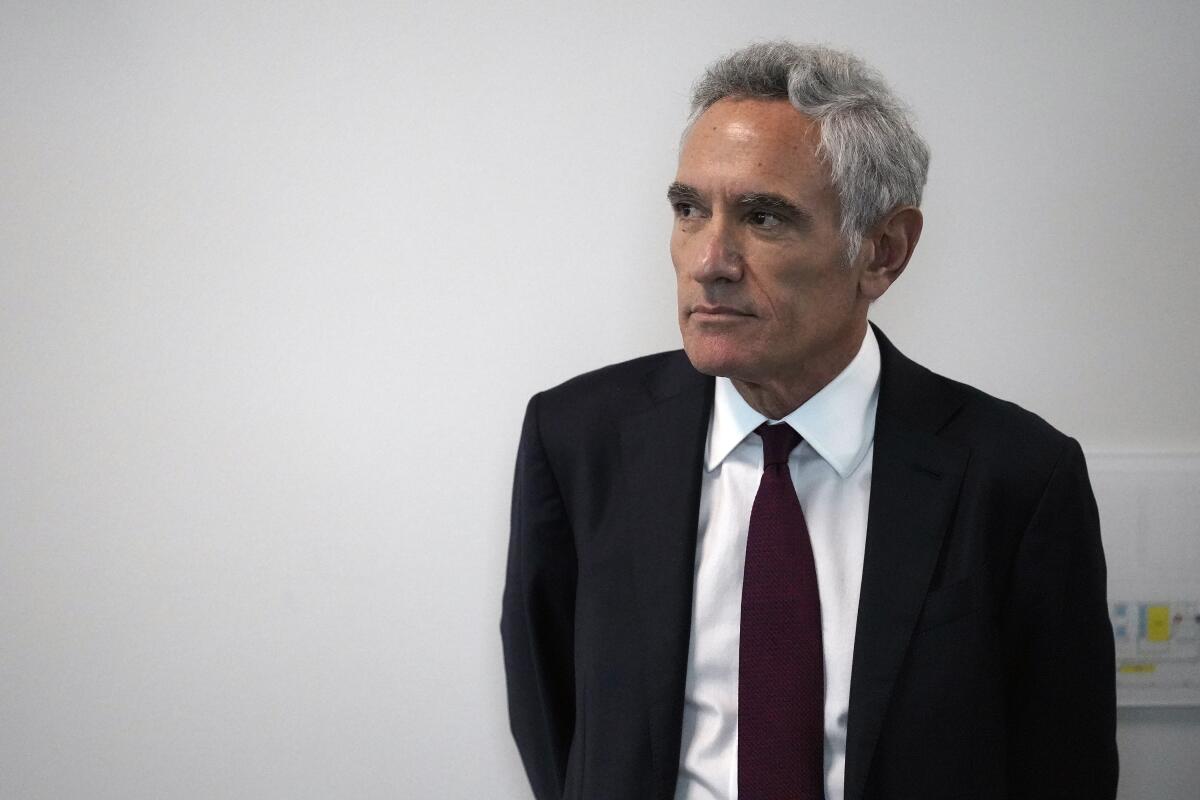Op-Ed: Pseudo-expertise should not guide America’s response to COVID-19

We are writing to offer some expert advice: Don’t trust all experts, particularly those expounding in fields far afield from their area of expertise.
History is littered with cautionary examples. There was Linus Pauling, the Nobel Prize-winning chemist who shilled vitamin C for colds and just about everything else. William Shockley, a physicist who was awarded a Nobel for his work on transistors, promoted frightening positions on eugenics. The biochemist Kary Mullis, who won a Nobel in 1993 for developing the polymerase chain reaction technique now used to diagnose COVID-19, promoted the idea that AIDS was caused not by HIV but by use of recreational and anti-HIV drugs.
Now we have our former colleague Dr. Scott Atlas, a past chief of neuroradiology at the Stanford University School of Medicine and current senior fellow at the Hoover Institution, providing bad epidemiological advice to President Trump and his White House coronavirus task force.
Having an onsite neuroradiologist would be extremely helpful if the president were concerned about, say, mini-strokes. As epidemiologists, we would not dare to offer advice in that realm. We might even walk across campus to consult Atlas. And we wouldn’t object to Atlas’ advice on the pandemic if it were based on reliable science. But the guidance he is giving to the White House does not reflect sound epidemiological reasoning, nor is it consistent with the current body of scientific knowledge about COVID-19.
Atlas has recommended less testing for COVID-19 and less mask wearing in indoor public settings. He has disregarded important nonfatal health risks of COVID-19, such as serious heart abnormalities found in many recovered patients and even in young athletes. He has falsely suggested that children cannot transmit the disease. And he has promoted infecting people he deems at low risk for poor outcomes, but offered no effective means to prevent asymptomatic viral spread to family members or vulnerable contacts. Although he denies that his strategy is to maximize the number of infections in order to achieve “herd immunity” — the point at which epidemic spread slows because a high enough percentage of the population has already been infected — his recommendations have the same effect.
Scientists do not agree on how best to combat this pandemic. That is the nature of science: It moves forward through vigorous debate. But all good scientists share an allegiance to resolving disagreements with facts, data and logic. Health scientists share an additional obligation to minimize suffering and death. Several of Atlas’ positions fail these tests of scientific legitimacy.
One of those positions is now embodied in new recommendations by the Centers for Disease Control and Prevention. The agency’s revised guidelines discourage testing of asymptomatic people with potential exposure to the coronavirus. When questioned, Atlas described the new recommendations as “common sense,” telling the Palm Beach Post: “The goal of all this testing is to save lives, not to document asymptomatic people.”
There is no common sense in the claim that lives would be saved by reducing testing of those exposed to infection, with the potential for unwitting spread. Many people at personal low risk for poor COVID-19 outcomes seek testing because they know that, if exposed, they pose a threat to family or other contacts at higher risk. Neither the CDC nor the Department of Health and Human Services has been able to offer a scientific justification for this policy change.
America’s response to the pandemic has been based on politicians cherry picking or misrepresenting science and scientists to serve political purposes. They present us with the false choice of controlling the virus versus saving the economy, when the countries with the most open economies and schools are those that have controlled the virus most effectively. The American approach, characterized by inadequate testing and conflicting public health recommendations, has not only resulted in profound economic damage. It has also put us in the upper tier of the world’s per-capita death rates, with both burdens falling most heavily on under-resourced groups and communities of color.
We are alarmed and distressed that the scientific reputation of our institution — or any institution — could be used to lend pseudoscientific legitimacy to manifestly dangerous and discriminatory public health practices. We are further dismayed that the current political environment permits pseudo-experts to marginalize real experts like Dr. Anthony Fauci and many at the CDC who have spent their lives protecting the public from scourges like COVID-19.
No single scientist or scientific field, epidemiology included, has all the answers to the many challenges posed by COVID-19. But following dictates not founded on sound science is a sure path to failure.
Steven Goodman is an associate dean and professor of epidemiology, population health and medicine at Stanford University School of Medicine. Melissa Bondy is the chair of the Department of Epidemiology and Population Health at Stanford. This piece was signed by all primary members of the school’s epidemiology and population health department.
More to Read
A cure for the common opinion
Get thought-provoking perspectives with our weekly newsletter.
You may occasionally receive promotional content from the Los Angeles Times.










